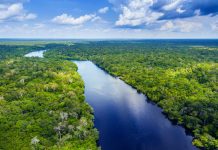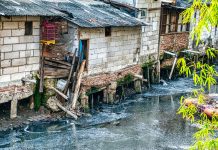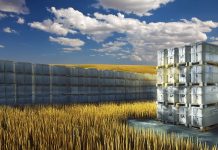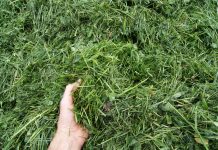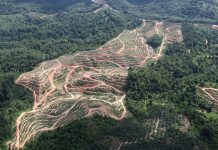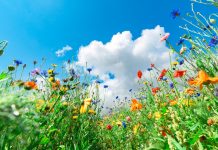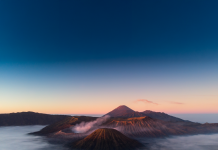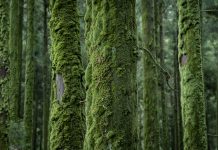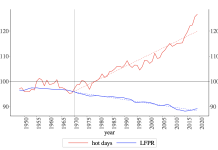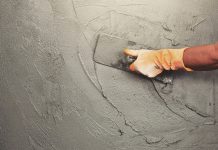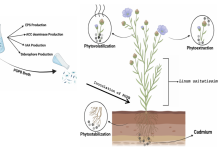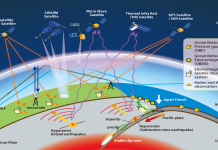Open Access Government produces compelling and informative news, publications, eBooks, and academic research articles for the public and private sector looking at health, diseases & conditions, workplace, research & innovation, digital transformation, government policy, environment, agriculture, energy, transport and more.
Home 2025
Archives
Protecting the environment and human health from persistent, mobile, and toxic substances
PMT substances pose a worrying impact to human health and the environment. This article highlights why it’s crucial to recognize the need for integrated prevention and remediation strategies to effectively combat the challenges these pollutants present.
Solar wind can provoke earthquakes: Possible magnetosphere-solid earth tornado
This article explores the potential influence of solar wind on earthquake occurrences, drawing on findings that show a correlation between strong earthquakes and geomagnetic storms, particularly in areas beneath the polar cusp during storm events.
COP30 in Belém: A new horizon for climate leadership
Professor Richard Beardsworth looks ahead to COP30 in Belém, considering whether this could represent a new era for climate leadership with Brazil positioned to lead, at least in partnership with other major actors.
Addressing the environmental impact of healthcare is a vital step to combat the climate...
Daniel G. Rainham and Sean D. Christie from Dalhousie University and Nova Scotia Health discuss the key areas where efforts should be directed to reduce the environmental impact of healthcare.
Water pollution in the textile industry: An urgent call for sustainable innovation
For business leaders and scientific professionals, addressing water pollution is crucial for the environment, economy, regulatory compliance, and public reputation. Victor Durand at Ever Dye highlights this issue in the textile industry and urgently calls for sustainable innovation.
Carbon capture surfaces: Supporting Canada’s agricultural sector and climate ambitions
Canada is positioning itself as a global leader in carbon dioxide removal (CDR) as it addresses climate change and creates economic opportunities for farmers. Beth McDaniel, JD from Reactive Surfaces explains how.
Unlocking sustainable proteins: Clover grass and lucerne as a future food source
The world faces a dual challenge: reducing the environmental impact of food production while ensuring a sustainable supply of high-quality proteins. New membrane filtration method enables us to produce food-grade proteins free of green color, grassy taste and odor.
A comprehensive overview of the EU deforestation regulation
Dr Christopher Gilbert at Biena Consulting Srl offers a comprehensive overview of the EU Deforestation Regulation, which aims to reduce the European Union’s contribution to deforestation, thereby minimising greenhouse gas emissions and combating global biodiversity loss.
Biodiversity data and ongoing monitoring: Eyes on the ground and in the sky
Monitoring biodiversity loss is hindered by current data sources. The B-Cubed project, funded by Horizon Europe, aims to create harmonised, policy-ready indicators to support evidence-based decisions on biodiversity, climate, pollution, and land use, aiding the Green Deal objectives.
Cracking the code of active volcanoes
Through the Horizon 2020-funded IMPROVE project, European scientists are deploying cutting-edge tools to reveal the hidden dynamics of Earth’s most powerful forces.
Rethinking urban greenery: A nature-based approach to biodiversity management
This article examines the urbanLIFEcircles project as an example for integrating biodiversity management into urban planning through nature-based solutions.
The importance of integrated forest management
Integrated forest management is a fundamental concept for the sustainable provision of demanded ecosystem services and the simultaneous promotion of biodiversity in our forests. Prof, Dr Andreas Rigling from Forest Ecology, Department of Environmental Systems Science, USYS – ETH Zurich, explains.
Carbon-neutral lifestyle changes and their impact on future health in cities
Dr Peter Hoffmann and Deniz Sirin at Climate Service Center Germany explore carbon-neutral lifestyle changes and their impact on future health in cities.
Modeling and mapping forest carrying capacity
Mark Kimsey, Director of the Intermountain Forestry Cooperative, discusses the modeling and mapping of forest carrying capacity, beginning with the historical context.
Permafrost resilience in the era of climate change and Earth system modeling
In this analysis from Everest Group, explore the resilience of permafrost in the context of climate change and earth system modeling, with an emphasis on how science and technology are enhancing Arctic stability and global risk management.
Climate change and the rise of adult male dropouts
Masahiro Yoshida from Waseda University’s Department of Political Science and Economics explores the link between global warming and male labor force participation.
CO2 mineralization in cement and concrete
Hegoi Manzano from the University of the Basque Country (UPV/EHU) explores CO2 mineralization in cement and concrete, along with related EU policies and programmes, as well as carbon capture, utilisation, and storage.
Microbially-assisted phytoremediation of cadmium
Arpita Bose, PhD, Associate Professor and Nida Zainab, PhD Researcher at Washington University in St. Louis, guide us through the process of microbially-assisted phytoremediation of cadmium.
How can carbon capture surfaces help the planet?
Beth McDaniel, JD, President of Reactive Surfaces highlights the potential of Carbon Capture Surfaces (CCS), an innovative and affordable of method using algae for CO2 removal, addressing the urgent need for scalable solutions to combat climate change.
10th Anniversary of the 2015 M7.8 Nepal earthquake: Explore new prediction technologies
Dr. Dimitar Ouzounov from the Institute for Earth, Computing, Human, and Observing (Institute for ECHO) at Chapman University and Dr. Angelo De Santis from the National Institute of Geophysics and Volcanology (Rome, Italy) are exploring new technologies for short-term earthquake forecasting and prediction, including the application of the LAIC approach to the 2015 Gorkha earthquakes in Nepal.



